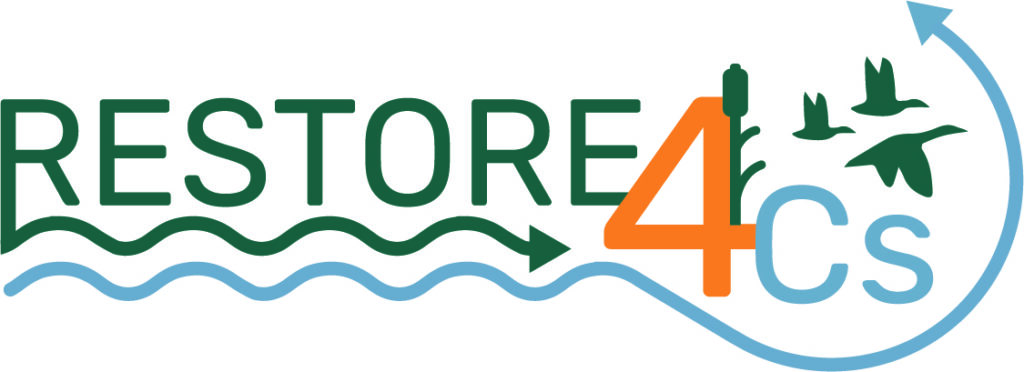
Abstract of the project
Healthy wetlands are recognized for being among the most effective carbon sinks and for providing other valuable ecosystem services. Conversely, wetlands affected by humans are a major source of greenhouse gases (GHG). Important research questions on the GHG abatement potential of wetland restoration and management and restoration actions to maintain and promote the mitigation and adaptation capacity of European wetlands have yet to be answered due to major gaps in data and knowledge. knowledge. The RESTORE4Cs project aims to fill this gap by assessing the role of restoration actions in the climate change mitigation capacity of wetlands and in the provision of a broad range of ecosystem services, using an integrative approach to socio-ecological systems.
RESTORE4Cs results will support the implementation of climate and biodiversity policies in the context of the European Green Deal. The project brings together 16 partners from across Europe, including natural and social science research institutes, research-oriented SMEs, NGOs and international intergovernmental organisations.

• Collect data on the effectiveness of land management and restoration actions in terms of climate services and other ecosystem and socio-economic services from six case pilot sites in European coastal areas and from meta-analyses.
• Extend integrative assessment models and tools to wider geographic (European) and ecological contexts (other types of wetlands, including floodplains and peatlands) using remote sensing and machine learning methods to develop an integrated assessment of the state of European wetlands.
• Integrate findings into a digital platform that serves as a decision support system for stakeholders and guides project efforts within a newly created community of practice on wetland restoration.
• Ecological Institute, Germany
• University of Málaga (UMA), Spain
• National Research Council (CNR), Italy
• Fondation Tour du Valat (TdV), France
• University of Valencia, Spain
• University of Barcelona (UB), Spain
• University of Vienna, WasserCluster Lunz (WCL), Austria
• Remote Sensing Solutions (RSS), Germany
• Vertigo Lab, France
• University of Bucharest (UniBuc), Romania
• Klaipėda University (KU), Lithuania
• The Mediterranean Wetlands Initiative (MedWet)
• LifeWatch ERIC, Spain
• Wageningen University & Research, Wageningen Economic Research, Netherlands
Maria Adam
Xavier Vicar
Sabino Maggi
Christine Tarantino
